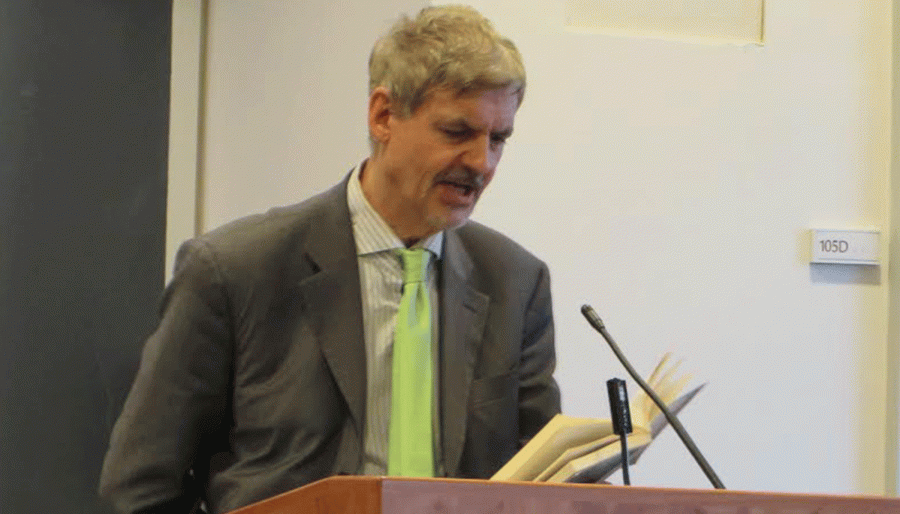Poet Stephen Romer Shares Dramatic Poems
Poet, translator and former traveling professor at Colgate University Stephen Romer visited campus on Wednesday, November 5. Romer read poems from his most recently published book, Yellow Studio, and poems from the French poet, Apollinaire.
Romer came from a family of painters, thus explaining the title “Yellow Studio.” His poems are full of color imagery and references to French culture.
“Stephen’s poems are always elegant, sensual … moving organically in their intellectual fusions,” Donald M. and Constance H. Rebar Professor in Humanities; Professor of English; Director of Creative Writing Peter Balakian said in his introduction.
“You could say Stephen Romer is one of the most cosmopolitan poets of his generation.” Olive B. O’Connor Professor of Literature Brian Hall said.
After these high praises, Romer began to read some of his poems. One of the standouts, “A Transcendental Weekend,” tied in the tragedy of 9/11 to a return to nature. Adirondacks was influenced by a weekend he had spent in the Adirondacks. With the lines, “Near to, the roadside trees / have an ashen look, / and lean upon each other like survivors / who have come a long way / and want a lift … These are the violet groves,” Romer captured the feel of the Adirondacks and its mysterious beauty.
Romer transitioned from talking about 9/11 to World War I, the time of French poet Apollinare. Much of his work was influenced by the war, and he became a different person due to the horrors he witnessed while fighting.
“[There was an] attitude of anguished acceptance of war because it’s a just cause,” Romer said. “It was their patriotic duty to defend the sacred body of France.”
Three of Apollinaire’s poems, “Platoon Leader,” “Hill 146” and “Cornflower” were read. “Cornflower” stood out as the most dramatic of the three, especially with the lines, “You Have Seen Death Up Close More Than One Hundred Times You Do Not Know What Life Is.” Romer described the different attitudes using one word each. “The first [poem] is erotic, the second is melancholic and the third is an appalling tragedy,” Romer said.
Romer himself translated each of Apollinaire’s poems. Translating poems from different languages is not easy, and literal translations are often not flattering. The translator has to preserve the artistic message and the flow of the words. Thus, there is a great responsibility involved. He is drawn to translating some poems over others, and not because of content.
“It’s texture,” Romer said. “The hard and soft. There is something tactile that the English language can never poke into like French can. There are tactile words, like asbestos and other concrete words the Anglo-Saxon is drawn to. Whereas French words are more lyrical. It has something to do with listening and this texture of sorts.”
Romer has had four books of poetry published, and is working on his fifth. He graduated from Trinity Hall in Cambridge. Currently, he is an English professor at Tours University in France.





